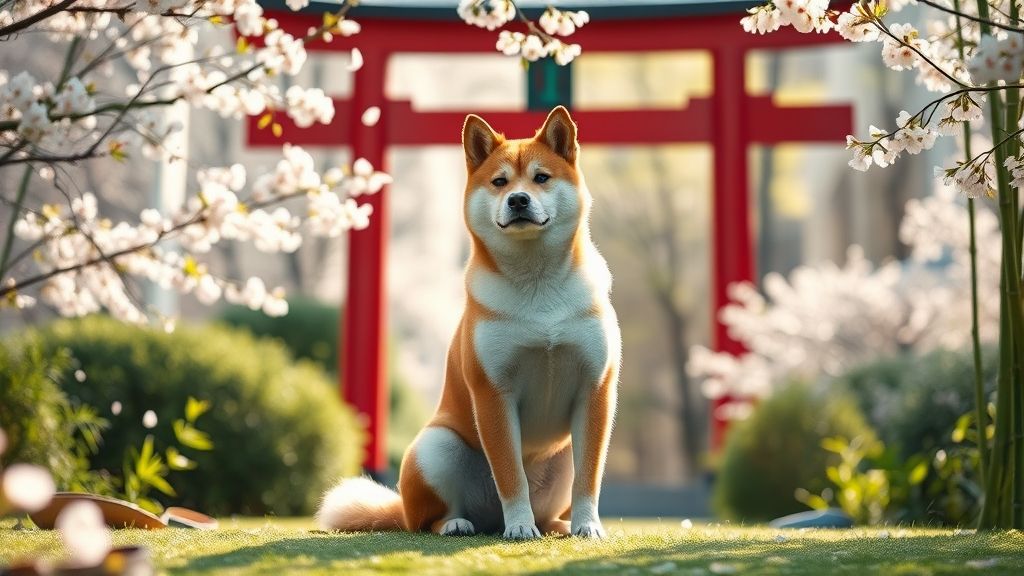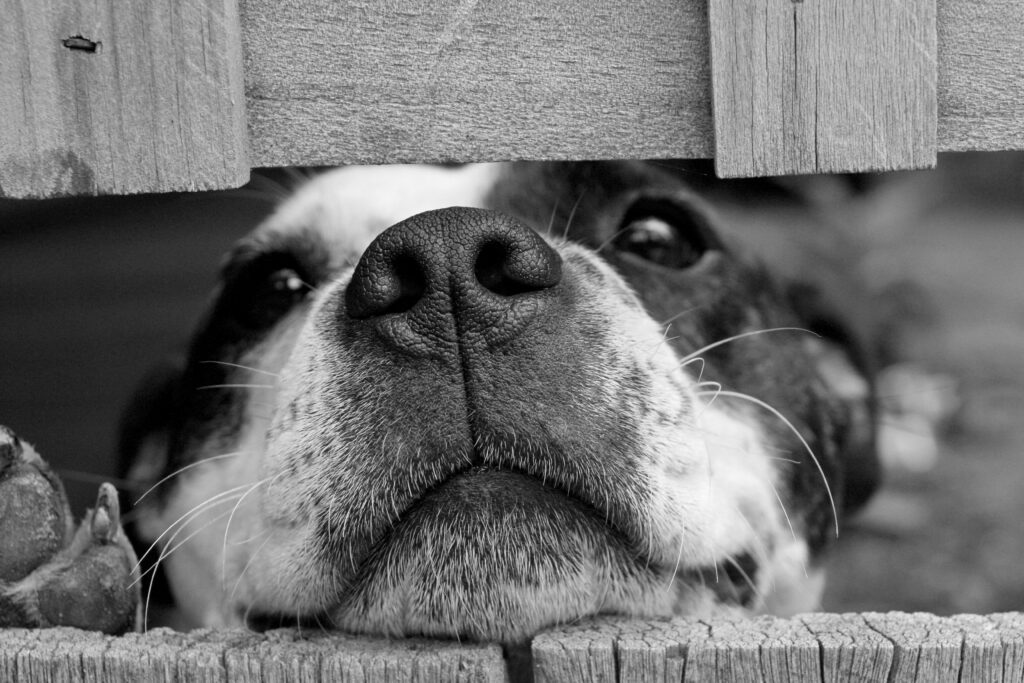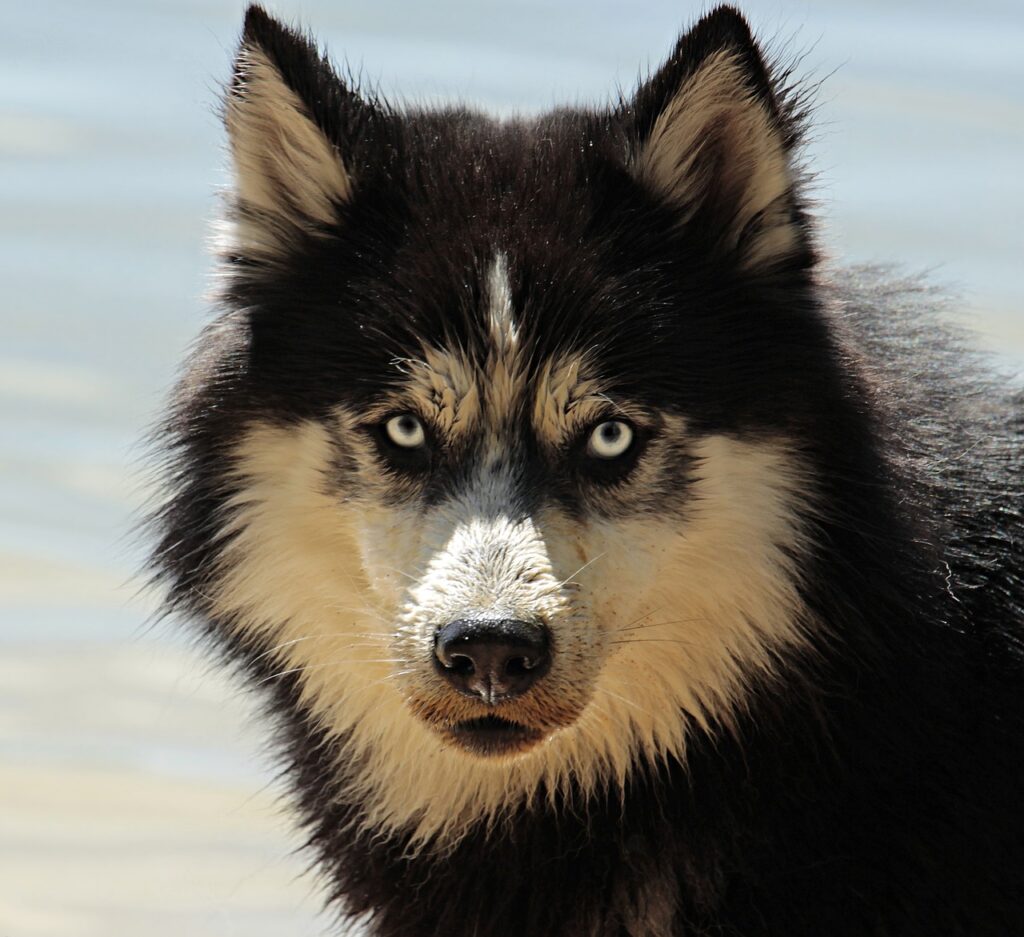Japanese Dog Names: Meaningful & Unique Ideas

Table of Contents
Bringing a new dog into your life is an incredibly exciting experience. As you prepare to welcome your companion, one of the first and most enjoyable tasks is choosing the perfect name. For many, delving into the rich tapestry of Japanese culture offers a wealth of inspiring and unique options. Perhaps you’re drawn to the traditional elegance of Japanese names, their inherent beauty, or the intriguing meanings behind them. Maybe you’re the proud owner of a Japanese breed like a Shiba Inu, Akita, or Hokkaido, and you want a name that reflects their heritage.
Whatever your motivation, exploring Japanese dog names unlocks a world of possibilities beyond the conventional. But with so many beautiful choices, where do you begin? Choosing a name for your furry friend is a personal journey, and you want to find one that resonates with you and fits your dog’s unique personality. This guide will explore the fascinating world of Japanese dog names, providing you with meaningful and unique ideas to consider for your beloved canine companion.
You’ll discover names reflecting nature, seasons, virtues, and even popular culture, helping you find the perfect fit for your new best friend.
Why Choose Japanese Dog Names for Your Companion?

Beyond simply sounding beautiful, Japanese dog names often carry deep meaning and cultural significance. You’re not just giving your dog a label; you’re bestowing upon them a name with roots in history, tradition, and poetic expression. This can add an extra layer of connection between you and your pet. Consider these compelling reasons why Japanese dog names might be the ideal choice for your furry family member:
- Rich in Meaning: Many Japanese names have beautiful literal translations. Choosing a name like “Sakura” (cherry blossom) or “Katsu” (victorious) can reflect your dog’s appearance, personality, or even your hopes for them.
- Unique and Distinctive: While Western dog names are common, a Japanese name can help your dog stand out at the dog park. You’ll likely avoid the confusion of multiple dogs responding to the same name.
- Celebrating Heritage: If you own a Japanese breed, a name from their homeland is a wonderful way to honor their ancestry and cultural significance.
- Aesthetic Appeal: Japanese names often have a beautiful phonetic quality, rolling off the tongue with elegance.
- Connection to Nature and Seasons: Japan has a strong connection to the natural world, and many names reflect the beauty of the seasons, plants, and animals.
Choosing a Japanese dog name allows you to infuse a bit of this rich culture into your daily life and celebrate the unique bond you share with your dog.
Popular & Classic Japanese Dog Names

Let’s delve into some of the most popular and beloved Japanese dog names. These names have stood the test of time for a reason, often possessing pleasing sounds and lovely meanings. You might find the perfect classic fit for your pup among these options:
- Akira: Meaning “bright” or “clear.” A popular choice for dogs with a cheerful disposition or light-colored coats.
- Kenji: Meaning “healthy second son.” A strong and classic name, often associated with resilience.
- Hana: Meaning “flower.” A sweet and feminine name, perfect for a gentle and beautiful female dog.
- Sora: Meaning “sky.” Evokes a sense of freedom and expansiveness, ideal for an adventurous pup.
- Yuki: Meaning “snow.” A popular choice for white or light-colored dogs, symbolizing purity and beauty.
- Hiro: Meaning “generous” or “widespread.” A name suggesting a kind and benevolent nature.
- Milo: While not exclusively Japanese, “Milo” is a popular loanword used in Japan and has a friendly, approachable feel.
- Kiko: Meaning “chronicle” or “history.” A unique and intriguing name.
- Ren: Meaning “lotus” or “love.” A name embodying beauty and affection.
- Kai: Meaning “ocean.” Perfect for a dog who loves the water or has a calm and deep presence.
These classic names offer a solid starting point and are widely recognized, making them easy for others to pronounce and remember.
Japanese Dog Names with Beautiful Meanings
For those who prioritize the significance behind the name, exploring Japanese dog names with beautiful and evocative meanings is essential. Imagine calling your dog a name that translates to “little star” or “peaceful river.” These names add a layer of depth and personal relevance. Here are some options where the meaning truly shines:
- Aiko: Meaning “child of love.” A tender and affectionate name for a cherished pet.
- Haru: Meaning “spring.” A joyful name for a dog who brings new life and happiness into your home.
- Ichigo: Meaning “strawberry.” A sweet and playful name, perhaps for a small or energetic dog.
- Kameko: Meaning “child of the turtle.” Symbolizing longevity and resilience.
- Kohana: Meaning “little flower.” A diminutive and endearing option.
- Naoki: Meaning “honest tree.” Suggests steadfastness and integrity.
- Shinji: Meaning “true.” A name implying genuineness and loyalty.
- Takara: Meaning “treasure.” Perfectly expresses how much you cherish your dog.
- Umi: Meaning “sea.” Similar to Kai, but perhaps evokes a sense of vastness and mystery.
- Yoshiko: Meaning “good child.” A classic and virtuous name.
Choosing a name based on its meaning allows you to select one that truly speaks to your dog’s character or the special bond you share.
Unique & Unusual Japanese Dog Names

If you’re seeking a Japanese dog name that’s a little less common and truly stands out, consider these unique and unusual options. These names might be derived from less familiar vocabulary, historical figures, or even ancient Japanese mythology. Giving your dog a unique name reflects their individuality and adds a touch of intrigue.
- Fuji: Named after Mount Fuji, the iconic Japanese mountain. A strong and majestic name.
- Izanami: A goddess in Japanese mythology. A powerful and unique name for a female dog.
- Katsuya: Meaning “victorious.” A strong and determined name.
- Mimasaka: Named after a historical province in Japan. A geographical and distinctive choice.
- Raiden: The god of thunder and lightning. Perfect for a powerful and energetic dog.
- Susanoo: Another important deity in Japanese mythology. A unique and historically significant name.
- Tsubaki: Meaning “camellia flower.” A beautiful and slightly less common floral name.
- Yamato: An ancient name for Japan. A patriotic and strong name.
- Zenjiro: Meaning “zen second son.” Combines spiritual and traditional elements.
- Amaterasu: The goddess of the sun in Japanese mythology. A radiant and powerful name.
Exploring less common Japanese names gives you the opportunity to find a truly one-of-a-kind name that perfectly suits your unique canine companion.
Japanese Dog Names Inspired by Nature & Seasons
Japan’s deep appreciation for nature is beautifully reflected in its naming conventions. If you feel a strong connection to the natural world or your dog has a personality that aligns with its elements or seasons, these names are perfect for you.
- Aki: Meaning “autumn.” A warm and comforting name.
- Fuyu: Meaning “winter.” Evokes a sense of purity and resilience.
- Natsu: Meaning “summer.” A bright and energetic name.
- Kaze: Meaning “wind.” For a fast or free-spirited dog.
- Mizu: Meaning “water.” For a calm or water-loving dog.
- Yama: Meaning “mountain.” For a strong and steady dog.
- Raku: Meaning “canna flower.” A beautiful and vibrant floral name.
- Midori: Meaning “green.” Associated with nature and vitality.
- Rin: Meaning “forest.” For a dog who loves the outdoors.
- Kira: While often considered a Western name, “Kira” also means “sparkle” in Japanese and can be a nature-inspired choice for a dog with a bright personality.
These nature-inspired names connect your dog to the beauty and power of the natural world, adding a poetic touch to their identity.
Japanese Dog Names Based on Personality and Appearance
Sometimes the perfect name jumps out at you based on your dog’s distinctive personality or their physical traits. Japanese names offer a fantastic range of options to capture these characteristics.
Names for Energetic & Playful Dogs:
- Genki: Meaning “energetic” or “healthy.”
- Hayate: Meaning “sudden wind” or “gale.” For a fast and lively pup.
- Ikari: Meaning “anchor,” suggesting boundless energy (like a ship needing an anchor).
- Katsu: Meaning “victorious,” implying a spirited and determined personality.
- Raijin: Another name for the god of thunder, perfect for a boisterous dog.
Names for Calm & Gentle Dogs:
- Heiwa: Meaning “peace.”
- Nagisa: Meaning “shoreline” or “calm beach.”
- Shizuka: Meaning “quiet” or “calm.”
- Yasashi: Meaning “gentle.”
- Zen: A term associated with calmness and meditation.
Names Based on Appearance:
- Kuro: Meaning “black.” (For black dogs)
- Shiro: Meaning “white.” (For white dogs)
- Aoi: Meaning “blue” or “green.” (For dogs with blue or green eyes)
- Cha: Meaning “brown” or “tea.” (For brown dogs)
- Kin: Meaning “gold.” (For golden-colored dogs)
- Maru: Meaning “round.” (For round-faced or plump dogs)
- Tora: Meaning “tiger.” (For brindle or striped dogs)
- Ko: Meaning “small.” (For small dogs)
- Oki: Meaning “large.” (For large dogs)
Observing your dog’s individual quirks, energy levels, and physical appearance can provide valuable inspiration for selecting the perfect Japanese name.
Choosing the Right Japanese Dog Name for You and Your Pup
With so many wonderful options, how do you narrow down the choices and select the absolute best Japanese dog name for your furry friend? Here are some practical tips to help you make your decision:
- Say it Out Loud: Practice calling out the names you like. Does it feel natural? Is it easy to pronounce? Your dog will learn to recognize their name, so choose one that’s clear and distinct.
- Consider Your Dog’s Personality: Does the name truly fit their temperament? A bouncing, energetic dog might not suit a name meaning “calm,” and vice versa.
- Think About Meaning (If Important to You): If you’re drawn to names with specific meanings, reflect on whether that meaning aligns with your hopes for your dog or their characteristics.
- Keep it Relatively Short: While some longer Japanese names are beautiful, shorter names or those with distinct sounds are often easier for dogs to learn and respond to. One, two, or three syllables are usually ideal.
- Avoid Names that Sound Like Commands: Steer clear of names that sound similar to common dog commands like “sit,” “stay,” or “no.” This can cause confusion for your dog.
- Get the Family Involved: If you have a family, make it a collective decision. Everyone should feel happy and comfortable with the chosen name.
- Imagine Your Dog Growing Up with the Name: Will the name still feel appropriate when your puppy is a large adult dog?
- Don’t Be Afraid to Try it Out: Once you’ve shortlisted a few names, try using them for a day or two (informally). See how your dog responds and how they feel to you.
Ultimately, the best Japanese dog name is the one that you love, that suits your dog, and that you feel happy saying every day. Trust your instincts and choose the name that brings a smile to your face.
The Cultural Significance of Naming in Japan
Understanding the cultural context behind Japanese names can deepen your appreciation for the options available. In Japan, names are chosen with care and consideration, often reflecting hopes for the individual’s future, their birth order, or connections to nature and virtues. While naming a dog is different from naming a child, the underlying principle of choosing a name with meaning and intention remains relevant. By selecting a Japanese dog name, you are engaging with a tradition that values thoughtfulness and significance in the act of naming.
Beyond the Basics: Exploring Less Common Sources of Japanese Dog Names
If you’ve explored popular and classic names and want to dig even deeper for something truly unique, consider these less conventional sources of inspiration:
- Traditional Japanese Arts & Crafts: Names related to origami, ikebana (flower arranging), or traditional textiles could be interesting.
- Japanese Mythology & Folklore: Beyond the well-known deities, there are many fascinating creatures, spirits (yokai), and characters in Japanese folklore that could inspire a name.
- Historical Periods & Figures: Names associated with specific periods in Japanese history (like the Edo or Meiji periods) or influential historical figures (with respectful consideration) could be an option.
- Regional Dialects: Japan has various regional dialects, some of which have unique words or phrases that could serve as unusual and distinctive names.
- Japanese Sweets (Wagashi): Many traditional Japanese sweets have beautiful and often poetic names that could be applied to a sweet-natured dog.
Exploring these less common sources requires a bit more research, but the reward can be finding a truly unique and meaningful Japanese dog name that nobody else has.
Conclusion: Finding Your Perfect Japanese Dog Name

Choosing a Japanese dog name is a personal and rewarding process. By exploring the rich meanings, cultural connections, and diverse options available, you are empowered to select a name that not only sounds beautiful but also resonates with you and your dog’s unique spirit. Whether you opt for a classic like Hana or a more unusual choice like Raiden, your chosen name will become an integral part of your dog’s identity and a constant reminder of your special bond.
Take your time, explore the meanings, say the names out loud, and most importantly, observe your dog. The perfect Japanese dog name is waiting to be discovered, and with this guide, you are well-equipped to find the ideal match for your cherished companion.
What are some of your favorite Japanese dog names? Share your thoughts and any unique names you’ve heard in the comments below!
